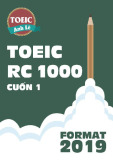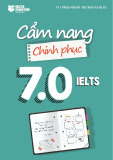
Reading comprehension -TOEFL- Lesson 27 (Đ c hi u -TOEFL- Bài 27)ọ ể
Đ c đo n văn sau và tr l i các câu h i:ọ ạ ả ờ ỏ
Marian Anderson's brilliant singing career began at age six when she sang
spirituals at the Union Baptist Church in her hometown of Philadelphia. She toured
Europe in the 1920s, drawing vast acclaim; however, when she returned to the
United States she was still barred from performing 5 on the American operatic
stage. After she was prevented from singing in Washington's segregated
Constitution Hall in 1939, Eleanor Roosevelt intervened and arranged for Miss
Anderson to perform at the Lincoln Memorial. A crowd of 75,000 people came to
watch her sing before the Memorial. Marian Anderson's beautiful contralto voice
broke down 10 racial barriers, showing white Americans that blacks had a
profound contribution to make to America's cultural life. Eventually, in 1955, she
became the first African- American singer to perform at New York's Metropolitan
Opera. In her many years of touring she had to endure a racism that forced her to
enter concert halls and hotels through 15 service entrances. Her grace under this
stress showed a moral perseverance that paralleled that of the famous Martin
Luther King, Jr.
1. We can conclude from the passage that Marian Anderson first toured
Europe instead of the United States because
(A) it was too expensive to tour in the United States
(B) she was paid more in Europe
(C) she was not allowed to perform in the United States
(D) there were better operatic facilities in Europe
2. The word "vast" in line 3 could best be replaced by which of the following?
(A) widespread

(B) positive
(C) enthusiastic
(D) respectable
3. The word "barred" in line 4 could best be replaced by which of the
following?
(A) purged
(B) released
(C) prohibited
(D) overpowered
4. The significance of Anderson's Lincoln Memorial performance was that
(A) 75,000 people came
(B) she was a black performer
(C) Eleanor Roosevelt arranged it
(D) her contralto voice was beautiful
5. In line 7, the word "intervened" means that Eleanor Roosevelt
(A) got up
(B) took in
(C) set up
(D) stepped in
6. In line 9-10, the phrase "broke down . . . barriers" means
(A) disclosed opportunities
(B) shattered obstacles
(C) revealed inaccuracies
(D) analyzed destinations
7. In line 10, the word "profound" could best be replaced by
(A) broad
(B) deep

(C) full-sized
(D) spacious
8. The word "eventually" in line 11 could best be replaced by which of the
following?
(A) later
(B) at last
(C) in the long run
(D) recently
9. The word "grace" in line 15 is similar in meaning to which of the following?
(A) awkwardness
(B) cruelty
(C) elegance
(D) saintliness
10. According to the passage, what did Marian Anderson have in common
with Martin Luther King, Jr?
(A) moral perseverance
(B) a clear strong voice
(C) a performance at the Lincoln Memorial
(D) singing in church
11. The author's tone in this passage is
(A) instructive
(B) critical
(C) respectful
(D) regretful
12. In line 15, what does the word "this" refer to?
(A) touring for many years

(B) racist attitudes toward her
(C) performing before thousands of people
(D) being like Martin Luther King, Jr.

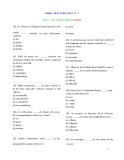
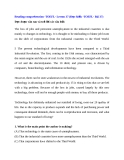
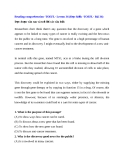
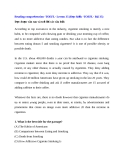
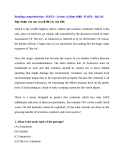
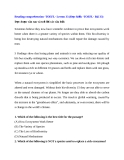
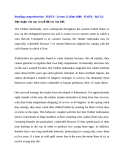
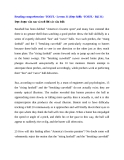
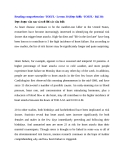
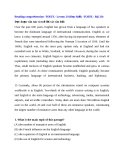
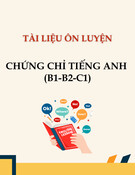

![Tài liệu luyện thi TOEIC cấp tốc trong 10 ngày [chuẩn nhất]](https://cdn.tailieu.vn/images/document/thumbnail/2025/20251029/kimphuong1001/135x160/99661761725822.jpg)
![Tài liệu Phá đảo TOEIC 900+ từ mất gốc trong 30 ngày [Mới nhất]](https://cdn.tailieu.vn/images/document/thumbnail/2025/20251029/kimphuong1001/135x160/2101761720956.jpg)
